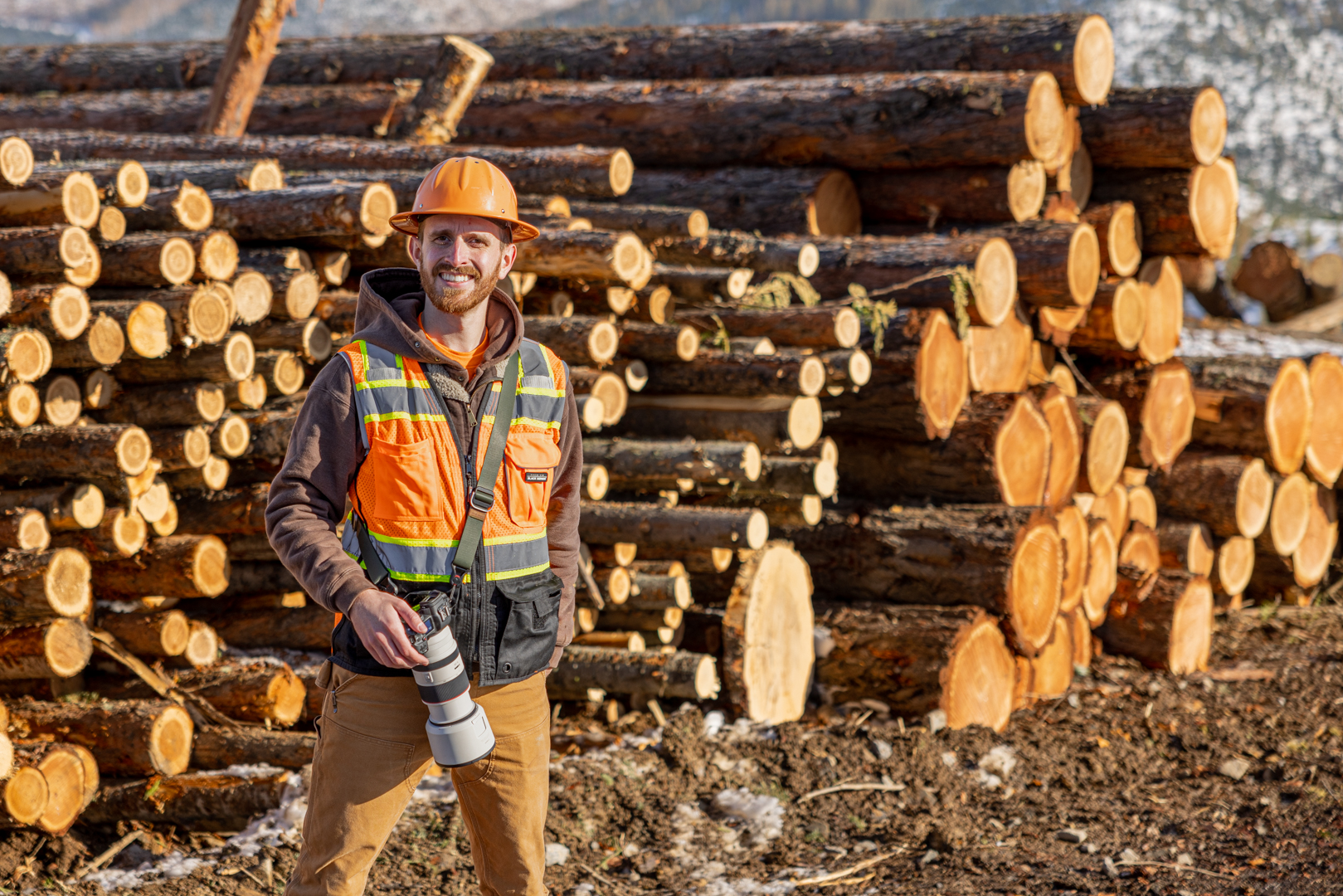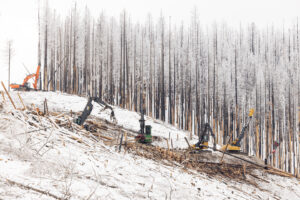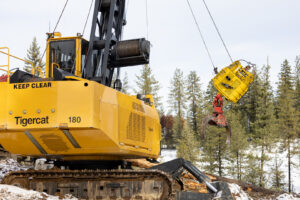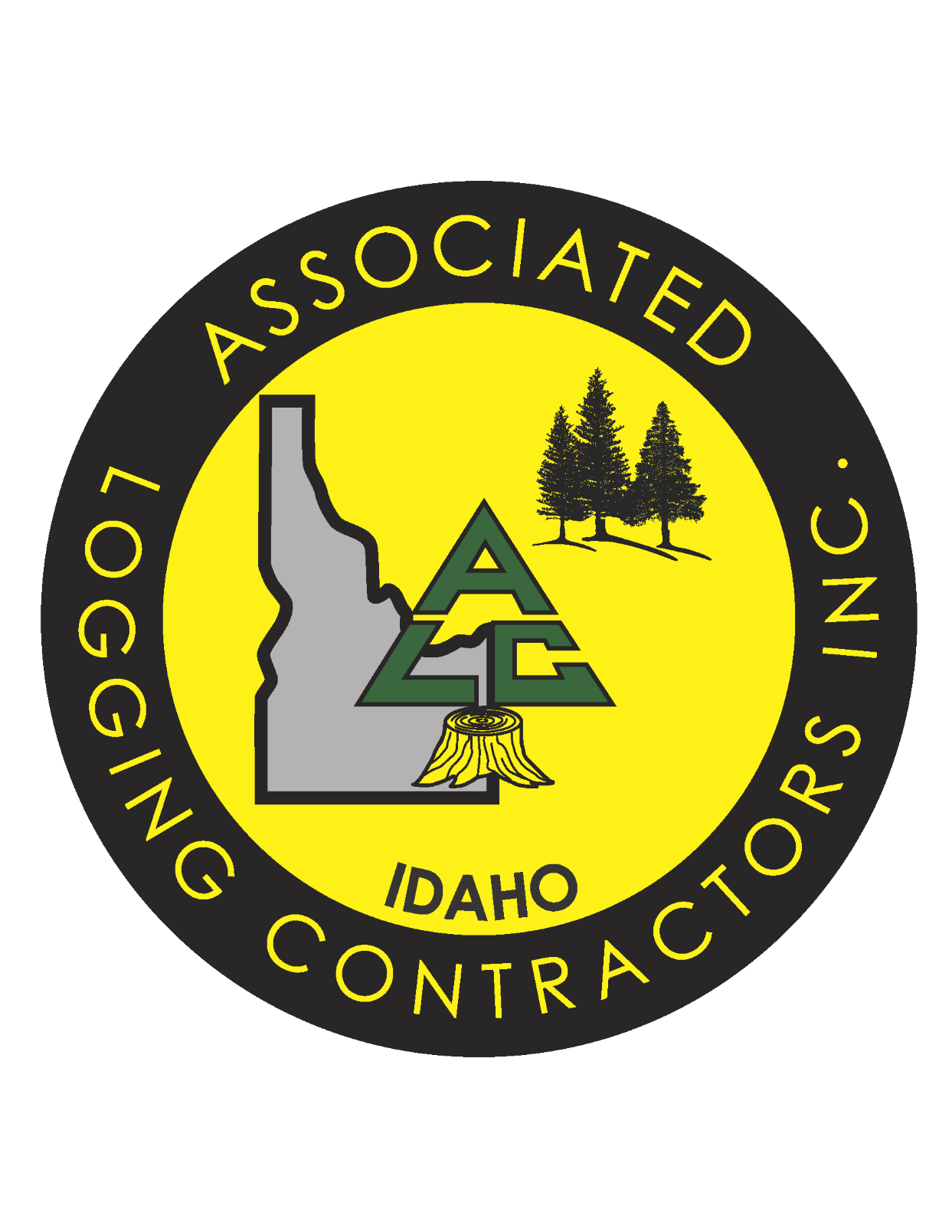
Ryer Becker sports his camera at a logging site. (Photo courtesy of Ryer Becker)
By Justin Post
For The Idaho Logger
Ryer Becker is working in the woods.
Becker is visiting logging jobs, snapping pictures and working to improve public perception of loggers and haulers.
“It has become clear how unfamiliar most individuals are with the logging industry including the equipment and processes used in contemporary logging operations,” Becker said.
But educating the public about the benefits of sustainable forestry is just part of his mission.
Becker serves on the research faculty at the University of Idaho’s College of Natural Resources where he helps prepare the next generation of loggers for careers in the industry.
The photos, videos and other data he collects at logging jobs helps in the college’s efforts to teach students about the latest and greatest equipment being used in the field.
“By going out to get my own photos and videos, I have full access to all the resources I need while also shooting the newest, most modern logging equipment being integrated into operations,” Becker said.
Becker’s gotten to know contractors along the way, hearing their concerns and industry insight.
“While out shooting these photos and videos, it has also allowed me to build relationships with our contractors statewide and learn directly from them to increase my own knowledge and understanding of the equipment, processes, and advancement of the industry,” he said.
Becker said he listens to the challenges that loggers and haulers are facing and seeks solutions.
For instance, Becker’s research has sought to integrate mobile technologies and mobile maps into forest operations to boost production and help more accurately analyze cost.
Some of his most recent work includes the development of activity recognition models using smartphones to monitor the work activities of logging equipment.
“The purpose of this research was to provide contractors and other natural resource managers with the means to determine their production and delays using technology most carry with them daily — smartphones,” Becker said.
It’s a similar concept to those applied to smartwatches or smartphones used to track activity, or fitness levels, he said.
Data collected from sensors in phones such as gyroscopes, accelerometers and sound meters are used to model and classify activities on logging jobs.
“In the context of my work, this would be activities like a feller buncher would do such as fell, walk, bunch, etc.,” Becker said. “These models I have worked on need more work before they can be operationalized, but myself and the Forest Operations Lab at UI are some of the first people developing these activity recognition models for forest operations and management tasks.”
And while he’s helping current contractors to maximize their time and energy, he’s also focused on equipping students with the information they’ll need to enter the industry.
Becker’s current focus is redeveloping the University’s forest operations coursework to support four-year forestry degrees as well as a new two-year degree in forest operations and technology.
“With the rapid advancement and increased mechanization of the logging industry, it was important to capture how the industry is changing in our curriculum to make sure or students are as equipped as possible once they graduate to support sustainable forest management while maintaining a fundamental and applied understanding of forest operations,” Becker said.
Becker said he’ll also continue working to identify ways to support Idaho’s loggers and haulers – and building public support for the important work that’s done in the industry to meet society’s need for forest products.
“I am working to increase public recognition and positive perceptions of what our logging and hauling contractors do,” he said.
Becker has heard from contractors struggling to fill jobs and says the college is looking into opportunities to develop new training and educational resources to support workforce development.
Apart from rising costs of everything, one of the biggest struggles facing the industry is related to recruitment and retention of a skilled workforce and the accessibility to training pipelines and exposure to the industry for future generations, Becker said.
“We need to address the very real workforce challenges facing our logging and hauling workforces and I hope my work now and into the future will help to support the health and advancement of the industry as a whole,” he said.
